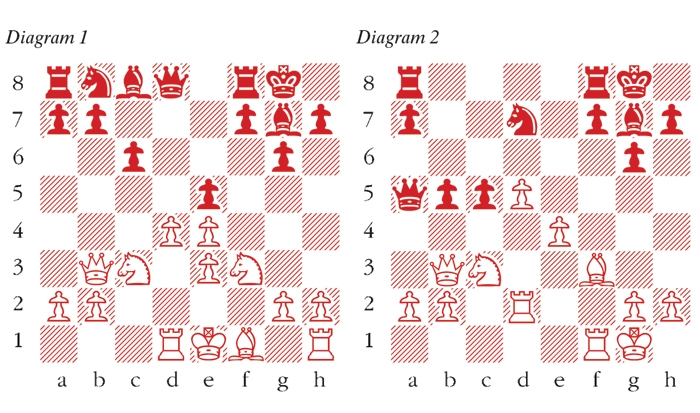My grandmaster colleague James Plaskett has two passions, the pursuit of the mythical giant octopus (ongoing) and a fascination with coincidence. Is the latter just a concatenation of unrelated circumstances, or does it have some deeper meaning, signifying something in the air at a particular time? How, for example, does one explain the virtually simultaneous, yet certainly isolated, discovery of the calculus by Newton in England, Leibnitz in Germany and Kowa Seki in Japan?
So Plaskett would, I am sure, be intrigued by the coincidental publication by two quite different publishing houses, of two books, both by American authors, about simplification, liquidation and the exchange of pieces? Not a subject of great moment, you might be forgiven for thinking — yet on closer inspection it proves a fascinating and fertile field for study.
Your Kingdom for my Horse: When to Exchange in Chess by Andrew Soltis is published by Batsford, while Liquidation on the Chessboard: Mastering the Transition into the Pawn Endgame, by Joel Benjamin, is published by New in Chess.
Andy Soltis is a US grandmaster and one of the most prolific chess authors in the world, while Joel Benjamin was adviser to the Deep Blue IBM team which defeated Kasparov in 1997.
Oster-Fischer: Poughkeepsie 1963; Grünfeld Defence
1 d4 Nf6 2 Nf3 g6 3 c4 Bg7 4 Nc3 d5 5 Qb3 dxc4 6 Qxc4 0-0 7 e4 c6 8 Qb3 e5 9 Be3 Ng4 10 Rd1 Nxe3 11 fxe3 (see diagram 1) Fischer has won bishop for knight which he described as being ‘practically a decisive advantage in an open position like this’. 11 … exd4 12 exd4 c5 Fischer chooses not to target White’s doubled pawns but to instead open the position to get his bishops working. 13 d5 Bg4 14 Be2 Bxf3 15 Bxf3 Bd4 This manoeuvre is designed to prevent White from castling and to fortify Black’s initiative.







Comments
Join the debate for just £1 a month
Be part of the conversation with other Spectator readers by getting your first three months for £3.
UNLOCK ACCESS Just £1 a monthAlready a subscriber? Log in